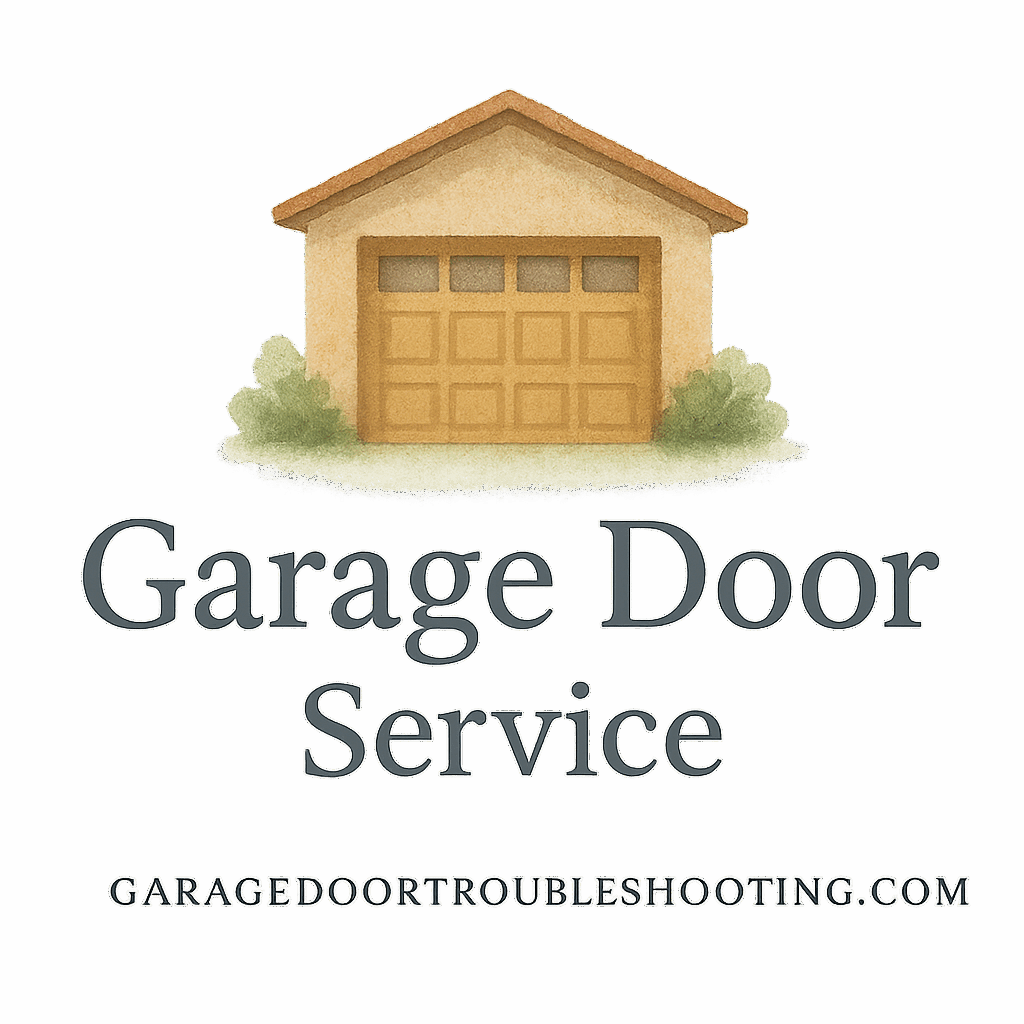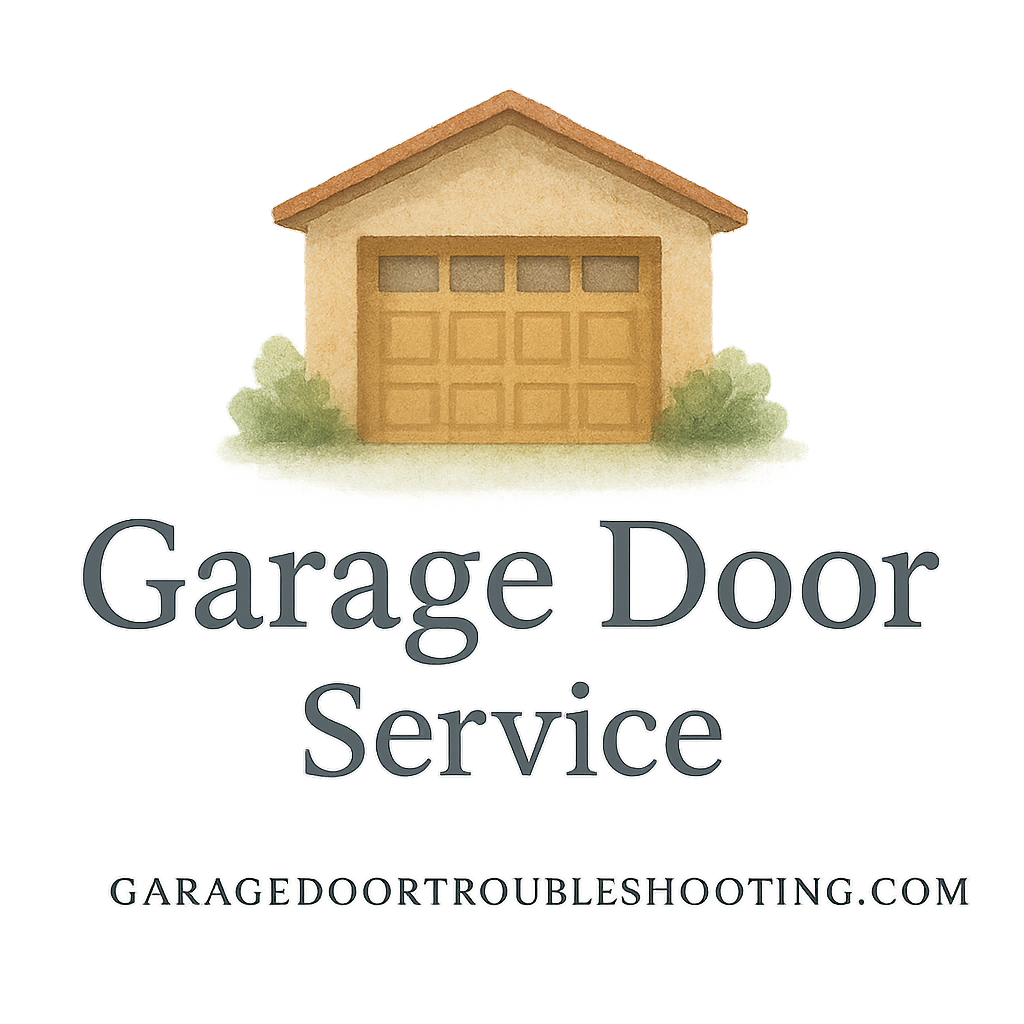Introduction: Why DIY Garage Door Repairs Sound Tempting
If you’re a homeowner, chances are you’ve looked at your garage door and thought, “How hard could fixing that be?” With countless DIY YouTube videos, toolkits in the garage, and the temptation to save money, many people believe they can handle DIY garage door repairs themselves. But here’s the catch: while some tasks like lubricating hinges or tightening screws are safe, others can be downright dangerous—or end up costing you way more in the long run.
Today, let’s bust 8 common myths about DIY garage door repairs that too many homeowners fall for. By the end, you’ll know what’s worth doing yourself and when to call in the pros.
Myth #1: DIY Garage Door Repairs Save You Lots of Money
The hidden costs homeowners overlook
At first glance, repairing your own garage door looks like a money-saver. Why pay a technician when you can grab some tools and do it yourself? But here’s the reality: most DIY garage door repairs end up costing more in the long run.
Buying the wrong parts, misdiagnosing the issue, or causing extra damage can rack up expenses quickly. Not to mention, if you hurt yourself, medical bills could dwarf the cost of professional service.
When professional repair is actually cheaper
A qualified garage door professional often diagnoses and fixes the problem in one visit. That means no guesswork, no unnecessary part replacements, and no risky trial-and-error. Sometimes, hiring a pro from a trusted garage door service provider is the most cost-effective choice.
Myth #2: Anyone Can Handle Garage Door Springs
The danger of torsion springs
One of the biggest myths is that garage door springs are easy to replace. In reality, torsion springs are tightly wound under extreme tension. A single wrong move can cause serious injuries, from broken bones to deep cuts.
Why spring repairs are best left to experts
Professionals have specialized tools and training to handle springs safely. That’s why many experts list spring replacement under dangerous repairs that should never be attempted by homeowners.
Myth #3: Online Tutorials Make DIY Garage Door Repairs Easy
The gap between theory and reality
Watching a 10-minute tutorial might make repairs look easy, but it rarely prepares you for the challenges of real-life garage doors. Your door may not match the model in the video, and missing small details can lead to big problems.
Why YouTube videos don’t always tell the full story
Videos often skip important safety warnings or assume you have professional-grade tools. What looks like a quick “DIY hack” can spiral into hours of frustration—or worse, a dangerous situation. For step-by-step guidance, it’s smarter to rely on trusted garage door repair guides written by experts.
Myth #4: Safety Risks Are Overstated
Real-life accidents from DIY attempts
Every year, thousands of homeowners are injured attempting DIY garage door repairs. From crushed fingers to falls off ladders, the risks are real. Some even require hospitalization.
The importance of garage door safety measures
Garage doors weigh hundreds of pounds. Without proper safety precautions, a simple mistake can cause property damage or injury to you or your family. This is why professionals emphasize garage door safety and security above everything else.

Myth #5: DIY Garage Door Repairs Last Just as Long
Quick fixes versus professional solutions
Many homeowners think their duct tape, WD-40, or improvised fixes will hold up. But garage doors are complex mechanical systems that need precise alignment, tension, and balance.
The problem with temporary patches
A temporary fix may last a week, maybe a month—but it won’t solve the root cause. Over time, the problem worsens, leading to bigger repairs. With a pro, you get durable solutions backed by warranties and reliable service quality.
Myth #6: All You Need Are Basic Tools
Why specialized tools matter
While screwdrivers and wrenches may be in your toolbox, many garage door repairs require torque wrenches, winding bars, and other professional tools. Without them, you risk damaging the system—or yourself.
The risk of damaging your garage door further
Improper tools can strip bolts, bend tracks, or ruin expensive parts. In the end, you might spend more replacing damaged components than you would’ve on professional garage door maintenance.
Myth #7: DIY Repairs Don’t Affect Warranty
What manufacturers actually say
Most manufacturers clearly state that improper repairs void the warranty. That means if you attempt DIY garage door repairs and something goes wrong, you’re on your own financially.
How DIY can void warranties and service contracts
Some warranties and service contracts require that all repairs be performed by certified professionals. Ignoring that can cost you coverage, leaving you responsible for full repair or replacement costs.
Myth #8: Calling a Professional Is Only for Emergencies
Why proactive professional service saves money
Some homeowners wait until the door stops working completely before calling for help. By then, the damage is often extensive.
How regular maintenance prevents costly breakdowns
Routine professional maintenance keeps your garage door running smoothly and extends its life. An affordable maintenance plan is far better than waiting for an expensive emergency repair.
Signs You Should Avoid DIY Garage Door Repairs
When it’s a safety hazard
If the repair involves springs, cables, or the motor system, it’s time to step back. These are high-risk repairs best handled by pros.
When the repair is beyond basic maintenance
You can safely lubricate tracks, replace weatherstripping, or test safety sensors. But anything mechanical, electrical, or structural should be handled by garage door professionals.
The Real Benefits of Hiring a Professional
Safety, expertise, and long-term savings
When you hire a pro, you’re not just paying for a fix—you’re paying for peace of mind. They bring safety training, expertise, and long-term solutions that protect both your door and your family.
Quality service and peace of mind
A reliable garage door service provider offers warranties, guarantees, and trusted service that no DIY approach can match.
Tips for Safe and Smart Garage Door Care
DIY maintenance you can do safely
Not all DIY is off-limits. Tasks like lubricating rollers, tightening bolts, and cleaning photo-eye sensors are simple, safe, and effective for extending your garage door’s life.
When to call the experts
If you hear grinding noises, see uneven movement, or notice a broken spring, don’t push your luck. Call a pro immediately for safe, reliable service. For installation advice, check out garage door installation guides.
Conclusion
The bottom line? While DIY garage door repairs may seem like a budget-friendly option, the risks, hidden costs, and safety hazards often outweigh the benefits. Some tasks like lubrication or cleaning are perfectly safe for homeowners, but when it comes to springs, tracks, motors, or anything that could put your safety at risk, it’s smarter to call a professional.
Don’t let myths trick you into dangerous decisions. Instead, invest in reliable service, follow trusted homeowner tips, and keep your garage door safe, efficient, and long-lasting.
FAQs
1. Are DIY garage door repairs ever safe?
Yes—simple tasks like lubricating moving parts, tightening screws, and cleaning sensors are safe for most homeowners.
2. What’s the most dangerous garage door repair?
Spring replacement tops the list. Garage door springs store extreme tension and can cause severe injuries.
3. How often should I schedule professional maintenance?
At least once a year, though high-use doors may need checkups every six months.
4. Do all repairs require a service contract?
Not all, but a service contract can save money on routine maintenance and emergency repairs.
5. Can I replace garage door springs myself?
It’s not recommended. Springs are under immense pressure, making them a high-risk repair.
6. Will DIY repairs void my warranty?
In most cases, yes. Manufacturers usually require certified technicians for repairs.
7. What’s the safest DIY garage door task I can do?
Regularly lubricating rollers, hinges, and tracks is safe, simple, and helps prolong the door’s life.


